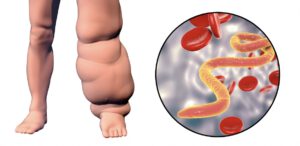 Lymphedema is a condition characterized by the accumulation of lymphatic fluid in the tissues, usually in the arms or legs, leading to swelling. The lymphatic system is responsible for maintaining the balance of fluid in the body and fighting infections. However, when this system is damaged or not functioning correctly, lymph fluid can accumulate, causing swelling and discomfort.
Lymphedema is a condition characterized by the accumulation of lymphatic fluid in the tissues, usually in the arms or legs, leading to swelling. The lymphatic system is responsible for maintaining the balance of fluid in the body and fighting infections. However, when this system is damaged or not functioning correctly, lymph fluid can accumulate, causing swelling and discomfort.
Lymphedema can occur as a result of surgery, radiation therapy, infection, trauma, or congenital malformations. It is often associated with cancer treatments, particularly breast cancer surgery and radiation therapy. Other causes include infections, such as filariasis, which is common in tropical regions.
Symptoms of lymphedema include swelling, a feeling of heaviness or tightness in the affected area, decreased flexibility, and difficulty fitting into clothing or jewelry. Lymphedema treatment typically involves manual lymphatic drainage, compression therapy, exercise, and in some cases, surgery.
It is important to seek medical attention if you experience any symptoms of lymphedema, as early intervention can help prevent complications and improve outcomes.